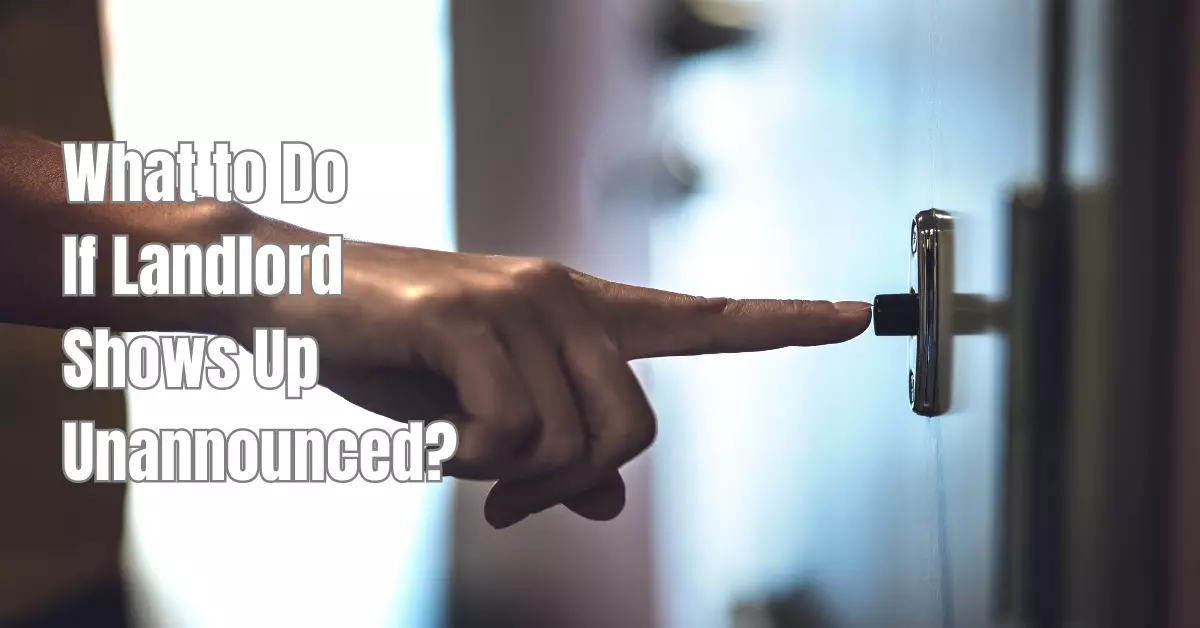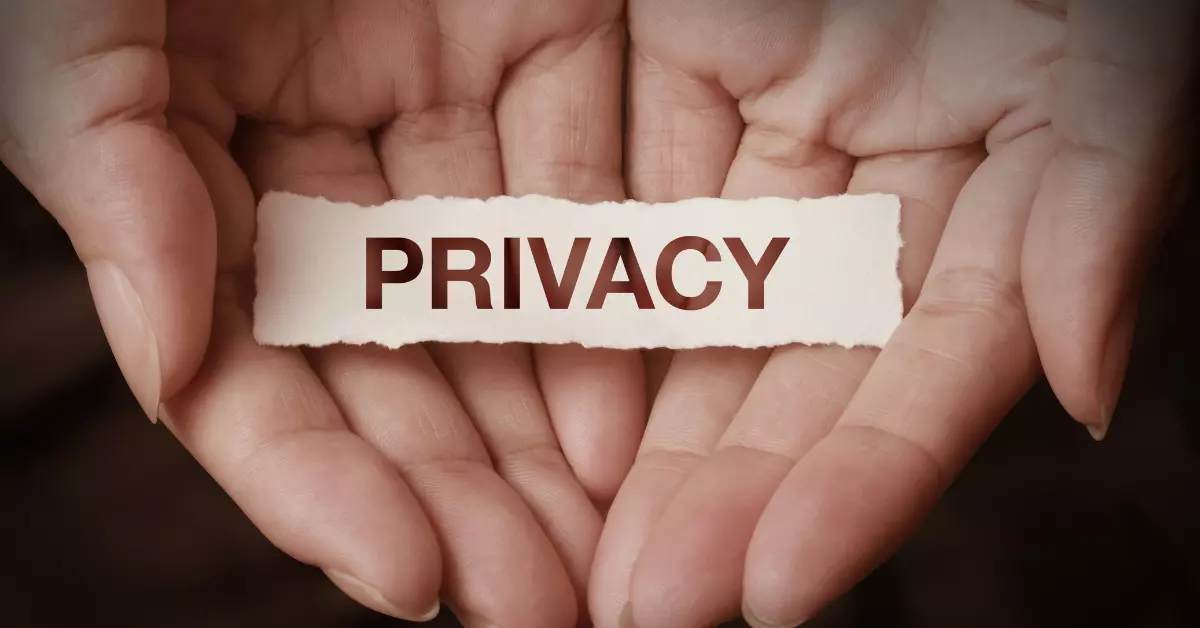What to Do If Landlord Shows Up Unannounced?
If your landlord shows up unannounced, first check your lease agreement for any clauses on visits. Politely remind them of your right to privacy and request advance notice for future visits, as required by law in most places.
Most states require landlords to give at least 24 hours’ notice before entering the premises, except in emergency situations.
If the landlord continues to violate your privacy, consult with a lawyer or seek assistance from a tenant advocacy group.
Remember, protecting your rights as a tenant is crucial for maintaining a healthy and respectful relationship with your landlord.

Understanding Your Rights As A Tenant
As a tenant, it’s essential to understand and be familiar with landlord-tenant laws, which vary from state to state.
It’s your right to know your legal rights in the eyes of the law. Here are some key points to help you understand your rights as a tenant:
- Landlords are not entitled to enter your unit unless there is an emergency or necessary repairs.
- You have the right to privacy and can deny a landlord entry without prior notice.
- Lease agreements cannot contain illegal clauses or waive tenants’ legal rights.
Know Your Lease Agreement
The lease agreement is a legally binding document that outlines the terms and conditions of your tenancy.
As a tenant, it’s essential to review and be aware of the clauses in your lease to avoid misunderstandings with your landlord. Here are some things you should look for:
- Monthly rent: Ensure the rental amount stated in the lease is accurate.
- Security deposit: Understand how much you need to pay, when to pay, and how to get it back.
- Maintenance responsibilities: Identify who is responsible for repair and maintenance tasks between you and the landlord.
- Renewal terms: Recognize if the lease is automatically renewed or not.
Understanding Your Right To Privacy
As a tenant, you have the right to quiet enjoyment, which means the right to live peacefully and without interference from the landlord.
Here are some things you should know to uphold your right to privacy:
- Your landlord cannot enter your rental unit without proper notice, except for emergencies.
- Non-emergency entry must be allowed during reasonable hours and for a legal reason, such as performing maintenance or showing the rental to prospective tenants.
- Avoid signing a lease agreement that requires you to give up your right to privacy.
Knowing your rights as a tenant can help you deal with unexpected situations, such as the landlord showing up unannounced.
Always refer to your lease agreement and familiarize yourself with landlord-tenant laws in your state to avoid misunderstandings with your landlord.

Dealing With Unexpected Landlord Visits
How To Handle An Unannounced Visit
As a tenant, an unexpected visit from your landlord can be unsettling. Here are some things you can do to help handle an unannounced visit with ease:
- Take a deep breath and don’t panic.
- Be calm and respectful. Remember that your landlord has the right to inspect their property.
- Ask for identification, such as a driver’s license, to ensure they are who they say they are.
- Politely ask the reason for the visit, and if it is an inspection, ask for the appropriate notice required by the law in your area.
What To Say And Do During The Visit
When your landlord does come for an unannounced visit, it’s crucial to know what to say and do to ensure a pleasant and productive encounter.
Here are some pointers:
- Be cooperative and honest during the visit. Making an effort to work with your landlord will help build a beneficial relationship instead of a negative one.
- Be prepared with documents such as your lease agreement and a checklist of any necessary repairs that require attention.
- If you are not ready for the visit, politely request a rescheduled appointment or agree on a suitable time that works for both parties.
- If there are any disagreements during the visit, handle them calmly and professionally.

Documenting The Visit
It’s essential to document any unannounced visits from your landlord. You can use the following to document the visit:
- Take photographs or videos of any necessary repairs or issues pointed out by the landlord.
- Make written notes of the visit’s date, time, and all issues covered by the landlord.
- Keep a copy of all documents signed by both parties, such as inspection reports and lease agreements.
- You can also send an email or letter summarizing the visit to your landlord.
An unannounced visit from your landlord can be unsettling, but it is essential to maintain a good relationship with them.
By being prepared, respectful, and cooperative, you can make the most of such visits and ensure that your needs are met.
Remember to document everything to protect both yourself and your landlord in case of any disagreements.
Frequently Asked Questions For What To Do If Landlord Shows Up Unannounced?
What Are My Rights As A Tenant If My Landlord Shows Up Unannounced?
As a tenant, you have the right to privacy and quiet enjoyment of the home. Legally, the landlord must provide reasonable notice before entering unless there is an emergency. If the landlord shows up unannounced, it is within your rights to ask them to leave.
How Can I Handle An Unannounced Visit From My Landlord?
If your landlord shows up unannounced, ask them to leave unless there is an emergency. Communicate your right to privacy and request reasonable notice next time. Keep any communication in writing and document the incident.
Can My Landlord Enter My Rental Property Whenever They Want?
No. Your landlord needs to provide reasonable notice before entering the property unless it’s an emergency. Landlords can only enter the rental property for specific reasons, such as making repairs or conducting inspections. As a tenant, you have the right to privacy and quiet enjoyment of the home.
What Are The Consequences If My Landlord Violates My Right To Privacy?
If your landlord violates your right to privacy by entering the property without reasonable notice, it is considered a breach of the lease. You can take legal action against your landlord, including suing for damages, terminating the lease, or requesting an injunction to prevent the landlord from violating your rights in the future.
Conclusion
Navigating unannounced landlord visits can be tricky. Asserting your rights politely yet firmly is key. Remember, you’re entitled to privacy and peaceful living.
Document these visits, stay informed about your local tenant laws, and don’t shy away from seeking legal advice if necessary. You’re not just a tenant—you’re also a resident with rights.
Reference
https://dcba.lacounty.gov/portfolio/landlord-entering-your-unit/